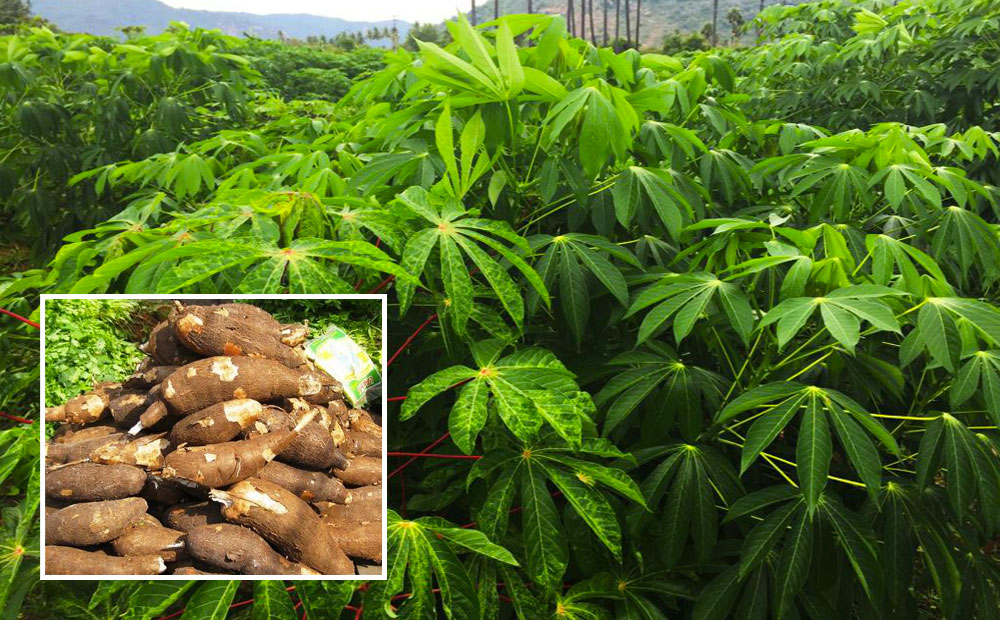Introduction
Cassava is one of the crops that have different end products, for one you can peel and boil the cassava tubers and take them with tea (note that not all kinds are edible in their fresh state), you can dry then grind them to turn it into flour for making ugali or porridge, cakes biscuits and doughnuts. Lastly you can make crisps and cassava chips that are very healthy and delicious. As a result of this Cassavas definitely have a big market. The Cassava crop also tolerates long dry seasons (6 to 7 months) as well as reduced rainfall making the Eastern, Coastal, Nyanza and Western Kenya ideal for cultivation of this crop.
Planting
There are varieties of cassavas depending on the region they are grown .We plant cassava by cutting stems closest to the roots. Cassava cuttings are usually collected in the field during harvesting. Improved varieties may also be obtained from research institutes or appropriate development organizations such as Kenya Agricultural and Livestock Research Organization (KALRO) .It advisable to get stems/seeds from the later since they multiply their seeds to make them resistant to diseases. Some of the diseases that attack cassava crops include the cassava mosaic and brown streak. Cassavas take 8 to 12 months to mature and require very minimal efforts in terms of weeding because once the plant is around 6-7 weeks it already forms canopy with its leaves making it difficult for weeds to thrive reducing the cost for weeding.
Cost
So just how much would you need to invest in this crop and how much should you expect in return?
Leasing land – (1 Acre) ksh.15000
Buying stems/seeds – Ksh.10000
Farm labour – ksh.20000
Fresh cassavas a bag of 90kg goes for ksh.3, 500 if your acre produced 20 tonnes that gives you ksh.777,778
Market
Marketing should not be so hard especially when you know who your target is. There are regions in Western Kenya that people swear by ugali made out of cassava, that should be your first priority if you are a farmer in that region as they tend to buy in bulk and also need the product dry increasing its shelf life. In the coastal region they lead in the processing of cassava chips and crisps. Another alternative is to join a cooperative society which buys the tubers and relieves you the hassle of having to find the market yourself. In Western one such cooperative is the Tangakona cooperative society in Busia County.
Final Word
Cassava can be combined with other crops to improve agricultural profitability and soil quality. Because of the nutrients they release into the soil, legume species such as cowpea, beans and groundnut are particularly suitable. This crop can be the financial breakthrough that you need especially because intercropping means it allows you to make money from other crops as you wait for it to mature. To reduce the cost you can use your own land if it’s in an ideal area and put on your boots together with your family and provide that free labour. The returns will be so worth it.



















